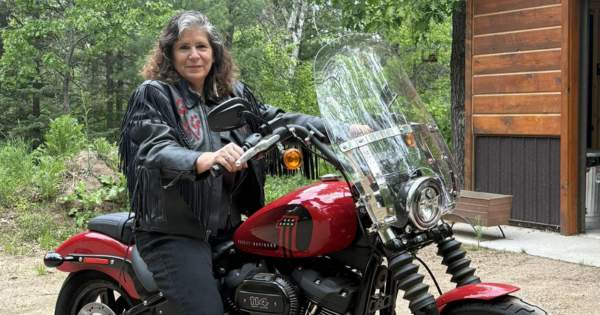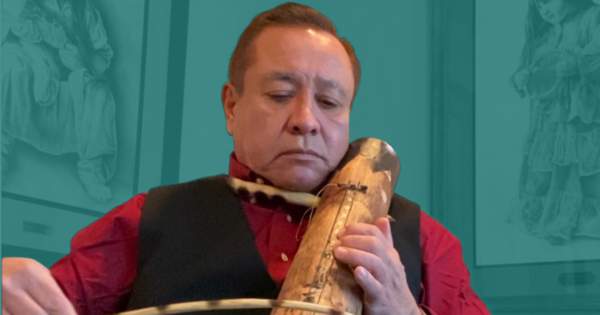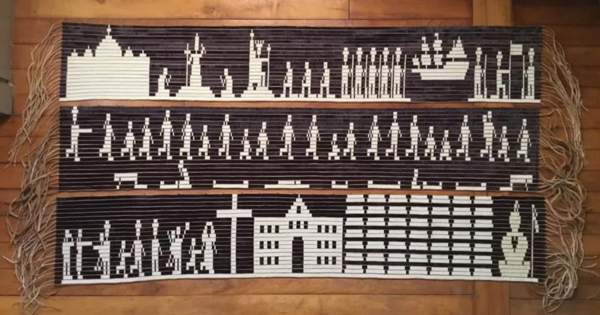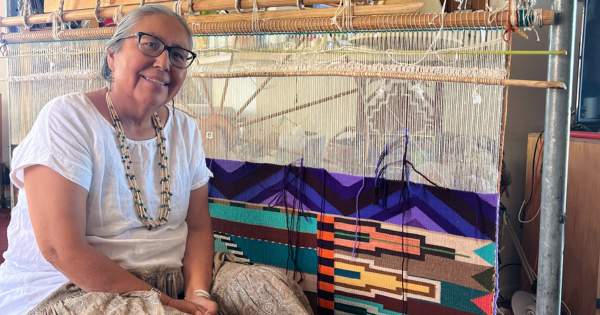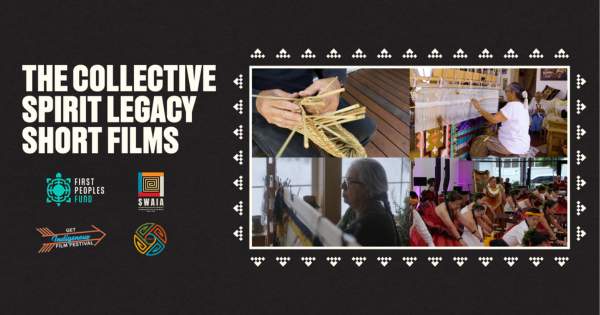
Finding Our Voice with Dances with Words
Tyler Star Comes Out (Húŋkpapȟa/ Mnikȟówožu/Oglala Lakȟóta/Cheyenne) has been passionate about writing since 5th grade. “Poetry is something I really love. I always carry a notebook just in case I get inspired.” Star Comes Out, who graduated high school last month, participates in Dances with Words, a youth development initiative of First Peoples Fund that works with young writers on the Pine Ridge Indian Reservation.
“I write poems in Lakota to help myself be more culturally involved,” says Star Comes Out.
Established in 2015, Dances with Words has collaborated with nearly three dozen young people this year alone, says Autumn White Eyes (Oglala Lakota/Turtle Mountain Band of Anishinaabe), Program Manager of Youth Development at First Peoples Fund. “The program offers workshops, open mics, feedback sessions, and invites guest speakers to talk with our youth.”
Poet and 2020 Cultural Capital Fellow CooXooEii Black (Northern Arapaho/African American) was thrilled to collaborate with Dances with Words for an open mic event. “You could tell [the youth] are passionate about their writing,” says Black. “Dances with Words gives young people a chance to be heard, which is especially important for indigenous writers at a young age.”
Wohpe Clamore (Cheyenne River Sioux Tribe), an 11th grader from Rapid City, South Dakota, wants to grow as a poet. “We had guest speakers who told us to incorporate Lakota words into our work,” says Claymore. “We did a lot of writing prompts and icebreakers which helped my writing. And we’re encouraged to give and receive feedback on our work. I love feedback!”
Claymore plans to write a book of poetry about relationships and grief.
History and Healing
Like many young Native writers, Wohpe Claymore and Tyler Star Comes Out acknowledge writing can help process intergenerational trauma and personal grief. “We learned about land treaties,” says Star Comes Out. “And we wrote our feelings down, which was helpful and healing.”
Star Comes Out also describes learning about Indian residential schools during a writing session, a tragic history for all Native peoples, especially when Native communities are uncovering unmarked mass graves in Canada and the U.S. in recent months. After their writing session, youth were encouraged to smudge themselves. “The staff are part of our tribe, so they understand our ways,” says Star Comes Out. “And it helps me feel connected and safe.”
Confronting difficult subject matter, like racial injustice, and writing about it was a recent workshop topic at Wóoyake Théča Oyáte, an inaugural virtual poetry festival hosted by Dances with Words. Ty Defoe (Giizhig), an interdisciplinary artist who led the workshop in May 2021, was invigorated by what he saw. “I felt I was in conversation with not only future generations, but it was healing at the same time,” says Defoe. “[The youth] gave me hope.”
“I felt I was in conversation with not only future generations, but it was healing at the same time,” says Defoe. “[The youth] gave me hope.”
Wóoyake Théča Oyáte is a week-long virtual poetry festival that offers daily workshops, open mics, and networking opportunities for youth ages 13-19 residing in Oceti Sakowin Territory. The purpose of this festival is to assist Native youth in exploring literary and oral history traditions across cultures, develop their own narratives, and to be heard in their communities.
CooXooEii (pronounced Jaw-Kah-Hay) Black advocates that youth should express their feelings, especially through writing. “In Indian Country, youth are not taught [to share their feelings],” says Black. “Bottling emotions can lead to toxicity, and emotional maturity is important for breaking [harmful] cycles we’ve seen in the past.”
Voices of the Future
In March 2021, youth from the Pine Ridge Reservation participated in the Thunder Valley Youth Initiative Leadership Summit, in partnership with Dances with Words and the Native Wellness Institute. The summit discussed topics such as health and wellness, drug and alcohol prevention, environmental justice, and racial equity. And two Dances with Words participants led a morning blessing in the Lakota language.
"We were really excited to offer this Youth Leadership Summit with Thundervalley CDC,” says Autumn White Eyes. “In the height of the pandemic when schools were entirely virtual, First Peoples Fund wanted to offer a virtual summit for youth all across the reservation to gather and learn together in leadership and art skills.”
First Peoples Fund offered two workshops based on feedback from the youth. Jaida Grey Eagle (Oglala Lakota) led a photography workshop on racial equity, and Dances with Words poet mentors led a writing workshop on environmental justice. Nearly a dozen youth participated in the summit.
Dances with Words is more than a writing program for young writers. The program offers arts education knowledge connected to community and societal issues, while preparing youth to grow as emerging artists and civic leaders. Tyler Star Comes Out didn’t realize she was an artist and an activist until Dances with Words. “I learned that I really like activism,” says Star Comes Out, who participated in the Black Hills protest against white supremacy last year and wrote a poem about her experience. “That’s another thing Dances with Words talks about: politics and environmentalism go together. That’s what inspired me to go to college.”
“That’s another thing Dances with Words talks about: politics and environmentalism go together. That’s what inspired me to go to college.”
Star Comes Out plans to attend Fort Lewis College in Durango, Colorado this fall to study political science.
“I realized my resiliency starts with standing up for things I believe in.”
